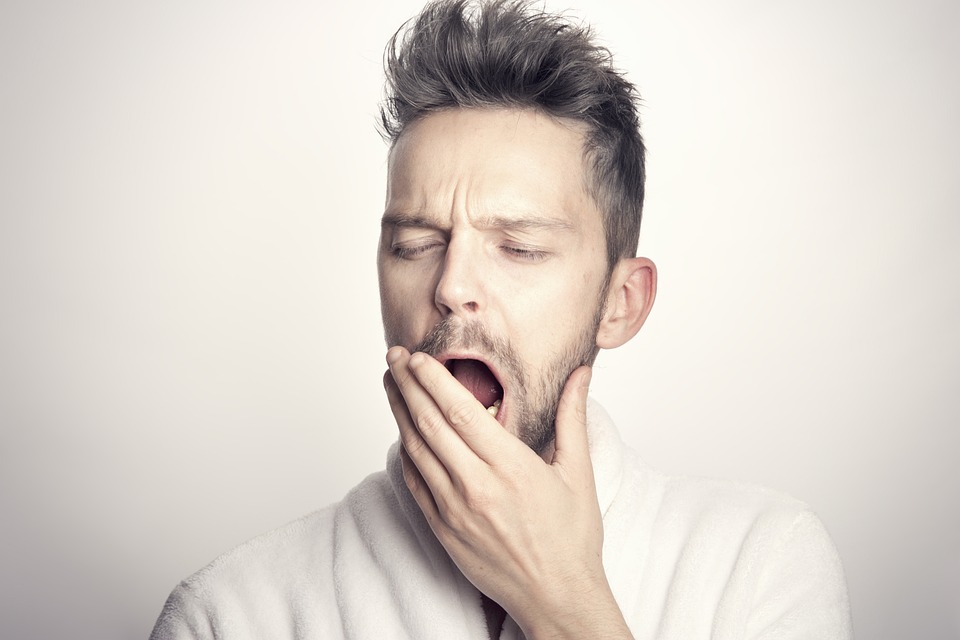Feel like you’re constantly tired? If your brain is always buzzing with work, or you’re just stressed out from the last year, you’re not in a good place. If you have no time to yourself between all your responsibilities, it’s even worse.
Here are nine lifestyle changes you can make to feel less tired: First, let’s find out more about why you’re always tired.
Why am I tired all the time?
There are a few things that can be blamed for preventing you from sleeping, aside from the exceptionally weird circumstances that could have kept you awake over the past year or so.
Oftentimes, we can identify a physical, psychological, or lifestyle cause for our fatigue when we feel particularly tired. The experts have identified the most common causes for this type of behavior.
1. You could be dehydrated
Without enough fluids, blood pressure decreases and oxygen delivery to the brain slows down, which can make you feel fatigued.
How do you know if you’re getting enough?
- If you’re still tired after sleeping 8 hours, you may need to up your H2O.
- The amount of fluid needed depends on the individual, but you should aim to go to the toilet at least three times a day.
- Between six and eight glasses of water-based drinks – including tea and coffee – a day are recommended.
2. It could be your thyroid
The thyroid is a gland that produces hormones to control sleepiness and hunger. When the thyroid is underactive, it is called hypothyroidism.
It’s common for people to oversleep, but it can be hard to identify the cause without a doctor’s help. If you are feeling tired even after getting a lot of sleep, you should schedule an appointment with your doctor to get a blood test.
3. You need to cut back on booze
Around 55% of people grab a drink of wine a few times a week to help them unwind after a tiring day. Although alcohol may make you feel relaxed at first, it can actually disrupt your sleep cycle and prevent you from getting deep sleep.
4. You could have Sleep Apnea
Sleep apnea is a disorder in which people wake up as they stop breathing, anywhere from five times to hundreds of times per hour. This means that they sleep for a longer period of time, but the quality of their sleep is compromised. Although the disorder only affects a small portion of the population, many sufferers go undiagnosed.
The problem is that you cannot remember waking up, making it difficult to determine if you are in fact experiencing any pain. Sleep tracking apps, like Pillow, can use data to alert you to any irregularities in your breathing.
Sleep apnea is a disorder characterized by snoring, being overweight, and waking up with a headache due to a nocturnal lack of oxygen. Speak to your doctor if they sound familiar.
5. You’re taking too many naps
This one is for those of you who have been working from home for the past six months. If you want to reap the benefits of a siesta, it’s important to make sure you don’t nap for too long.
It has been clinically proven that taking a nap for up to 30 minutes is revitalising. If you nap for any longer than that, you will end up in a REM cycle for an hour.
If you want to have a nap that lasts for 90 minutes, be disciplined about not snoozing.
6. Your mental health could need some work
When you’re depressed, it’s harder to get out of bed in the morning, which could lead to sleeping too much.
If you feel like you don’t have the energy to get through the day or you dread what’s ahead of you, talk to your GP.
7. You could have a mineral or vitamin deficiency
A lot of energy goes into maintaining blood glucose levels, muscle health and concentration. So, if you lack any one of these things—iron, vitamin B12 (especially if you are vegetarian or vegan), vitamin D (make sure you supplement 10 micrograms a day in the colder months) or magnesium, for example—you can feel lethargic.
You should always make sure you’re getting a balanced diet and book a blood test at your doctor if you continue to have problems.
8. Your fat intake could be too high
The study found that people who consume a high fat diet are more likely to feel sleepy during the day and report sleep problems at night, without differentiating between good and bad fats.
The University of Adelaide researched the dietary habits of over 1,800 Australian men between the ages of 35 and 80. They found that those who consume the highest fat intake were 78% more likely to suffer from tiredness compared to those who ate the fewest fatty foods.
It is important to know that not all fats are created equal and there has been plenty of research praising the benefits of ‘good fat.’ Instead of cutting avocado from your diet, be sure you’re not eating too much of it.
9. You’re eating a lot of sugar
Some evidence shows that eating foods high in sugar may be linked to sleep that is lighter and easier to disrupt. If you want to avoid disrupting your sleep, you should avoid snacking on chocolate before bed, since it contains caffeine. If you want to try something different, stop eating treats for a few days and see how you feel. You could replace them with an oatcake and almond butter.
9 Ways To Stop Feeling Tired and Boost Your Energy
1. Go to bed earlier
1 in 3 adults in the U.S. isn’t getting enough sleep, according to the recommendations.
What time you go to bed is important, too. People who go to bed at an earlier time have better blood sugar control in the morning, according to a recent study.
If you go to bed later, it’s more likely that your blood sugar will surge and then drop sharply. This can make you feel exhausted and less alert later on.
If you don’t want to feel as tired during the day, you should sleep earlier instead of sleeping in. As little as 30 minutes can make a difference.
2. Eat the right kind of breakfast
Many of us find mornings to be hectic, so it can be tricky to find the time to have a balanced breakfast. If you Start your day with a sugary drink, you’re likely to have low energy levels.
Choose a breakfast with less sugar to help regulate your blood sugar levels and avoid feeling tired and craving sugary foods later in the day.
To make a healthier toast, add fat and protein sources like avocado or egg, and grilled vegetables like tomatoes.
3. Eat the right foods for you
No one-size-fits-all answer to nutrition. The foods that have the biggest impact on your blood sugar levels will vary from person to person.
If you want to feel less tired, you should know which foods will give you energy.
4. Look after your gut health
The evidence that gut health can affect sleep is growing.
The trillions of bacteria and other microorganisms that live in your gut (your gut microbiome) may be linked to better sleep, according to some research. In addition, poor sleep has been associated with particular types of bacteria.
The common sign of an unhealthy gut is often tiredness.
Your gut bacteria are involved in the production of hormones that regulate sleep, like melatonin, serotonin, dopamine, and gamma-aminobutyric acid (GABA).
There are certain foods you can eat which will help improve the health of your gut. These include foods rich in probiotics and prebiotics.
LIVE bacteria that scientists believe may have health benefits. They’re found in many fermented foods and drinks, including:
- live yogurt
- kefir
- kimchi
- sauerkraut
- kombucha
- miso
- raw and unpasteurized chees
Prebiotics are food for your gut bugs. You can find them in legumes such as chickpeas and lentils, as well as in onions, garlic, mushrooms, asparagus, and whole grains like oats, barley, and rye.
5. Exercise more
Working out is an excellent way to increase your energy levels.
Studies have found that being physically active can improve the quality of your sleep and help to relieve stress, which can itself lead to poorer sleep.
6. Manage your stress
Stress and anxiety can negatively impact your sleep quality and daytime focus.
Sleep loss can make stress and anxiety worse, which is frustrating. People who experience anxiety or stress for long periods of time are more likely to have difficulty sleeping.
If you experience stress, you are more likely to also experience other sleeping issues, like waking up multiple times throughout the night.
There is no one size fits all when it comes to anxiety and stress. Each person experiences these conditions in their own way. The treatment options include:
- cognitive behavioral therapy (CBT)
- mindfulness and meditation
- exercise
There is new research that suggests that improving your gut health could help with anxiety symptoms. There is some evidence to suggest that certain types of bacteria can improve mood, but more research is needed in this area.
It may be difficult to manage stress, but it is important to do so in order to improve sleep and feel more awake during the day.
7. Drink more water
Dehydration can cause you to feel drowsy, fatigued, and grumpy.
Drinking more water, on the other hand, has been linked with reduced fatigue. So increasing your water intake during the day can help you feel less tired.
The recommended amount of water to drink in a day is 6-8 cups, or 2 liters.
These are only guidelines and not rules because everyone is different. You should drink water whenever you feel thirsty.
8. Drink less alcohol
You can improve your sleep quality by cutting back on your alcohol consumption. Alcohol can disrupt sleep patterns and lead to poorer quality sleep, especially in men.
A study of 4,000 people found that even moderate alcohol consumption can have significant negative effects on sleep.
Other people find that drinking alcohol before going to sleep makes it more difficult for them to get a good night’s sleep. Some people find that drinking alcohol in the evening helps them to get to sleep while others find that it makes it more difficult to get a good night’s sleep. Research indicates that staying up late can cause you to wake up later at night, resulting in feeling more tired the next day.
Drinking alcohol can result in a hangover, which can make you feel less alert.
You don’t have to give up alcohol entirely, but…. If you drink alcohol in moderation, it may improve your sleep quality and make you less tired during the day.
9. Quit smoking
It is no surprise that smoking is bad for your health.
Smoking not only increases your risk of developing major health conditions such as cancer and heart disease, but can also disturb your sleep and make you feel more tired during the day.
Smokers have lower quality sleep and more difficulty falling asleep or staying asleep according to a review of studies on smoking and sleep.
Smoking makes you more likely to have sleep apnea, and makes it worse if you have it.
Cigarette smokers are more likely to have difficulty getting up in the morning and to experience daytime sleepiness due to the effects smoking has on nighttime rest.
If you are a current smoker, talking to a healthcare professional can help you find the resources you need to quit.
Summary
If you’re regularly feeling tired, try changing your daily routine to increase your energy.
There are several things you can do to feel less tired during the day, such as going to bed earlier, keeping your blood sugar levels in check, and looking after your gut health.
There are several things you can do to increase your energy levels including getting regular exercise, staying hydrated, managing your stress, and avoiding cigarettes and alcohol.



